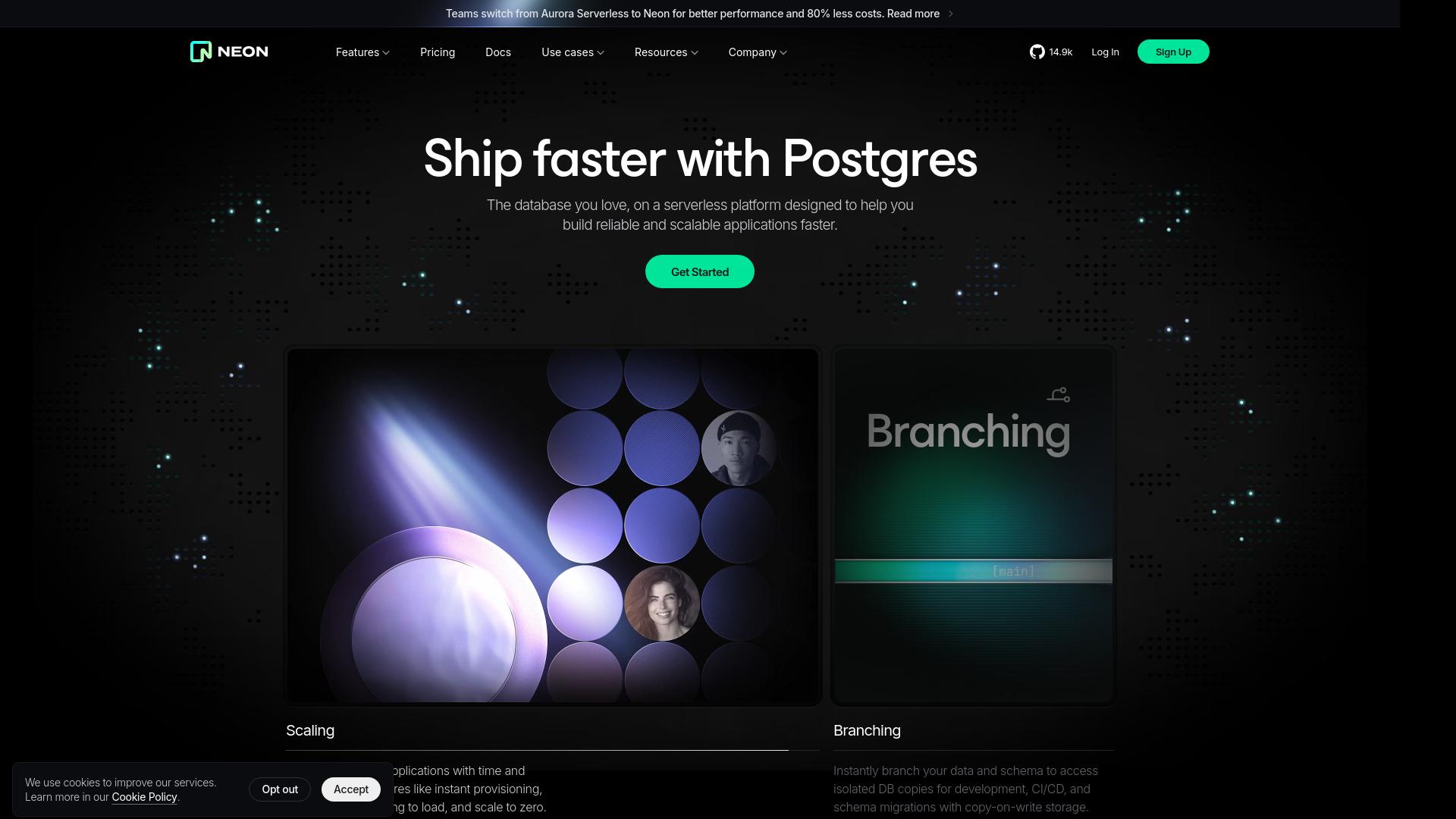7+ Free PostgreSQL Hosting Platforms for Developers in 2024
 Probir Sarkar
Probir Sarkar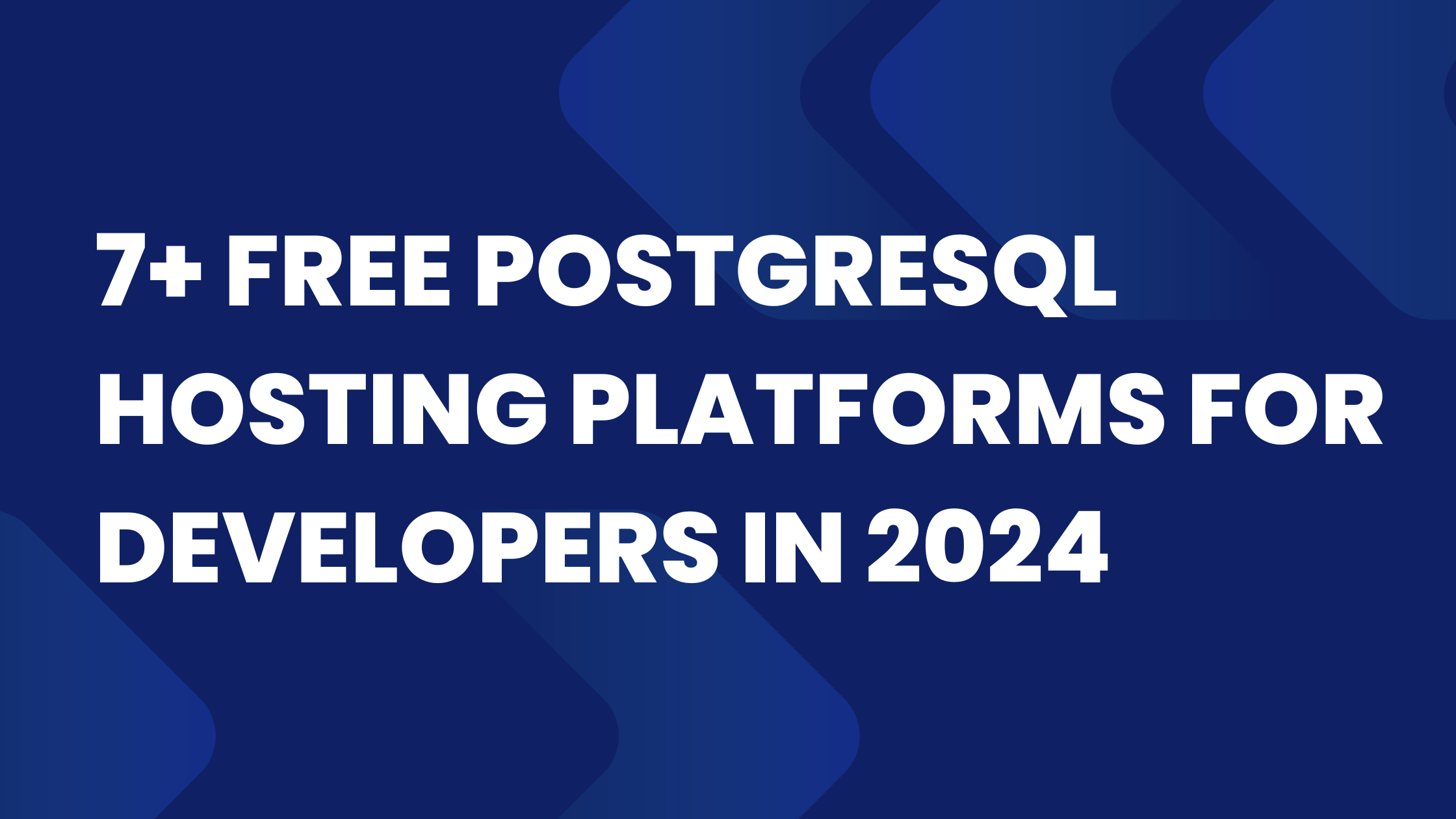
PostgreSQL often stands out as a robust open-source solution when building applications that need scalable, reliable databases. However, the cost of cloud hosting can add up, especially for smaller projects, personal experiments, or startup MVPs. Fortunately, several cloud providers offer free tiers for PostgreSQL hosting, providing excellent options to kickstart development without worrying about infrastructure costs.
Here’s a look at some of the best free PostgreSQL hosting options available in 2024:
1. Neon
Neon is a serverless, fully managed PostgreSQL database that stands out for its innovative features like autoscaling and database branching. These capabilities make Neon especially appealing for teams focusing on CI/CD and testing environments.
Free Tier:
10 projects
0.5 GiB storage
Autoscaling up to 2 Compute Units (2 vCPU, 8 GB RAM)
With Neon, your database scales automatically, adapting to your workload, and its branching functionality makes it a breeze to manage multiple environments in parallel.
Perfect for: Developers looking for an innovative, serverless approach with smooth branching and scaling features.
2. Supabase
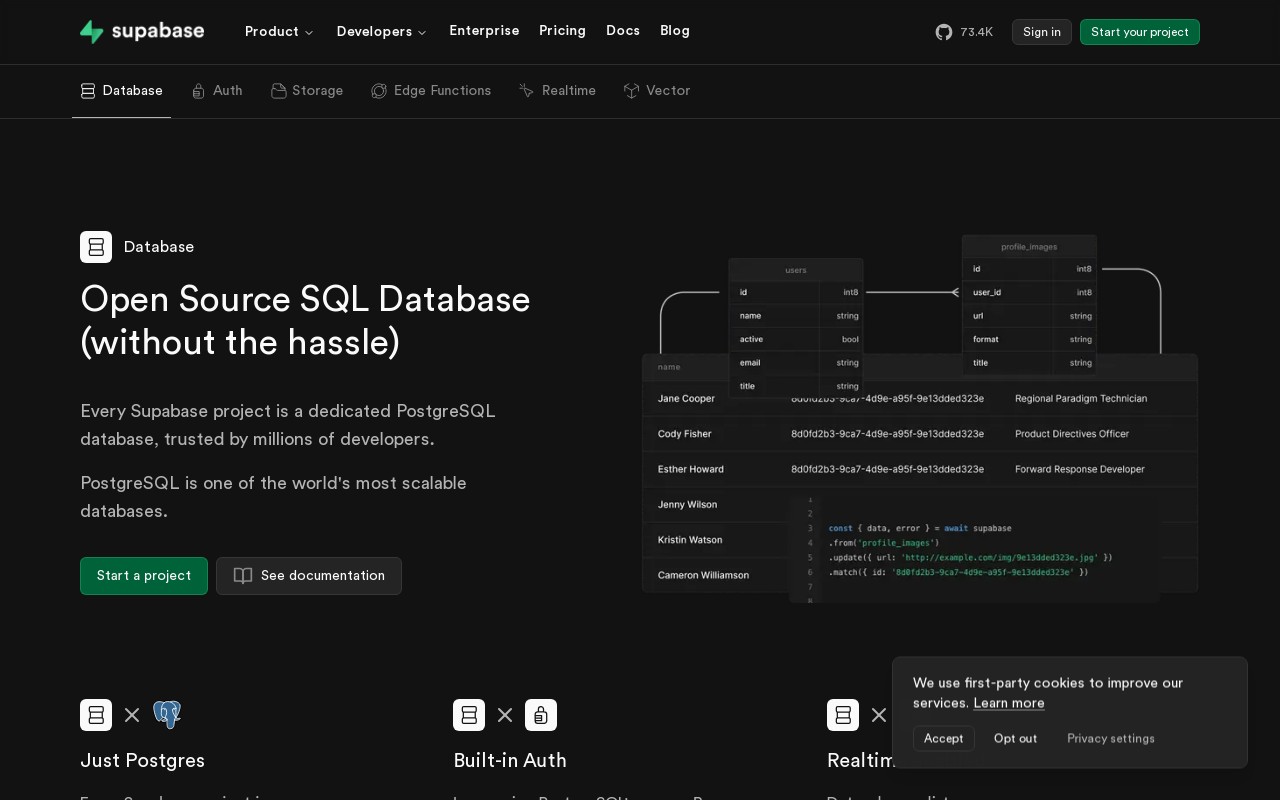
Supabase has rapidly gained traction as an open-source Firebase alternative. While its core offering is its real-time backend, it also provides a fully managed PostgreSQL database that integrates seamlessly with the rest of the platform.
Free Tier:
500 MB database space
Shared CPU
500 MB RAM
Supabase is ideal for developers who want to quickly set up a scalable backend with built-in authentication, storage, and real-time features.
Perfect for: Building full-stack applications with integrated services like authentication and storage.
3. EdgeDB
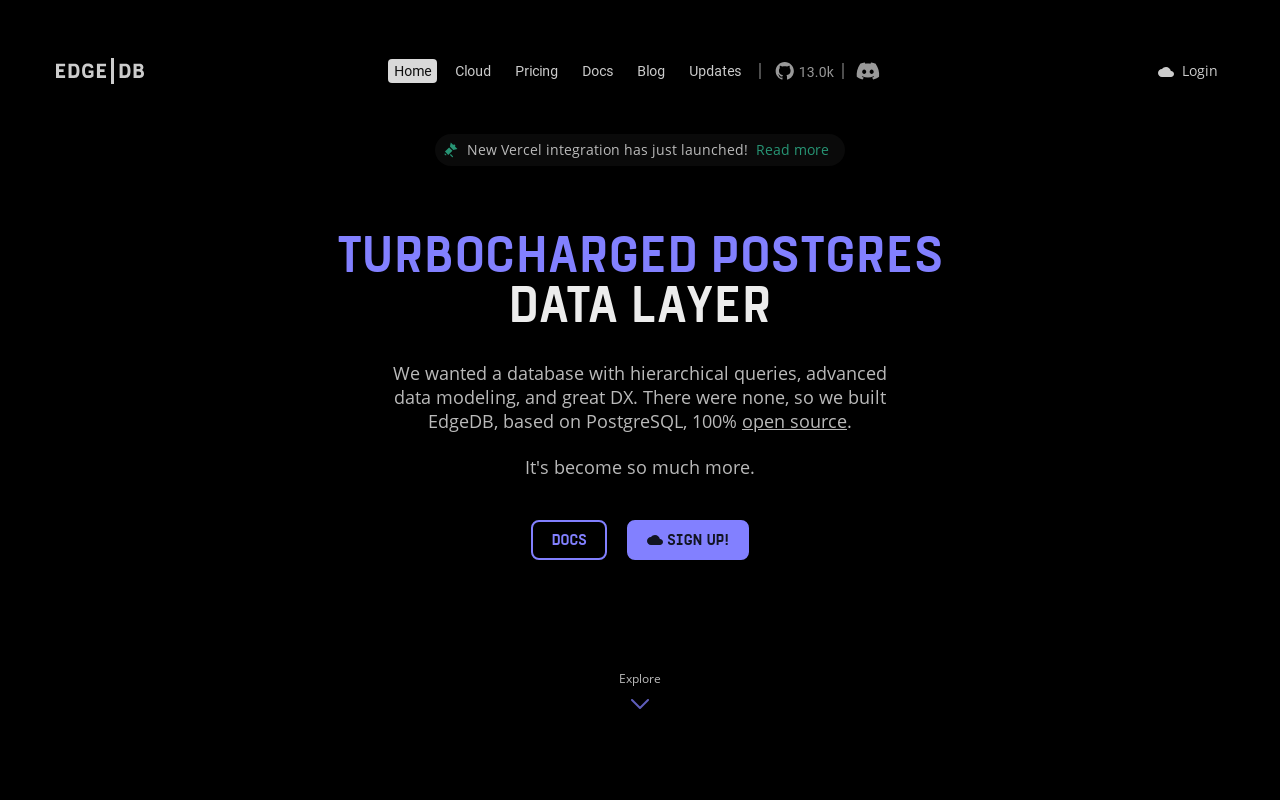
EdgeDB is rethinking relational databases by combining elements of graph databases. This advanced PostgreSQL wrapper is schema-driven and focuses on offering a modern query language for application development.
Free Tier:
1/4 compute unit (1/16 vCPU, 1/2 GiB RAM)
Up to 1 GB of disk space
Though relatively new, EdgeDB is gaining popularity for projects that need advanced querying and a modern schema-based approach.
Perfect for: Developers who want a modern PostgreSQL experience with advanced querying capabilities.
4. Xata
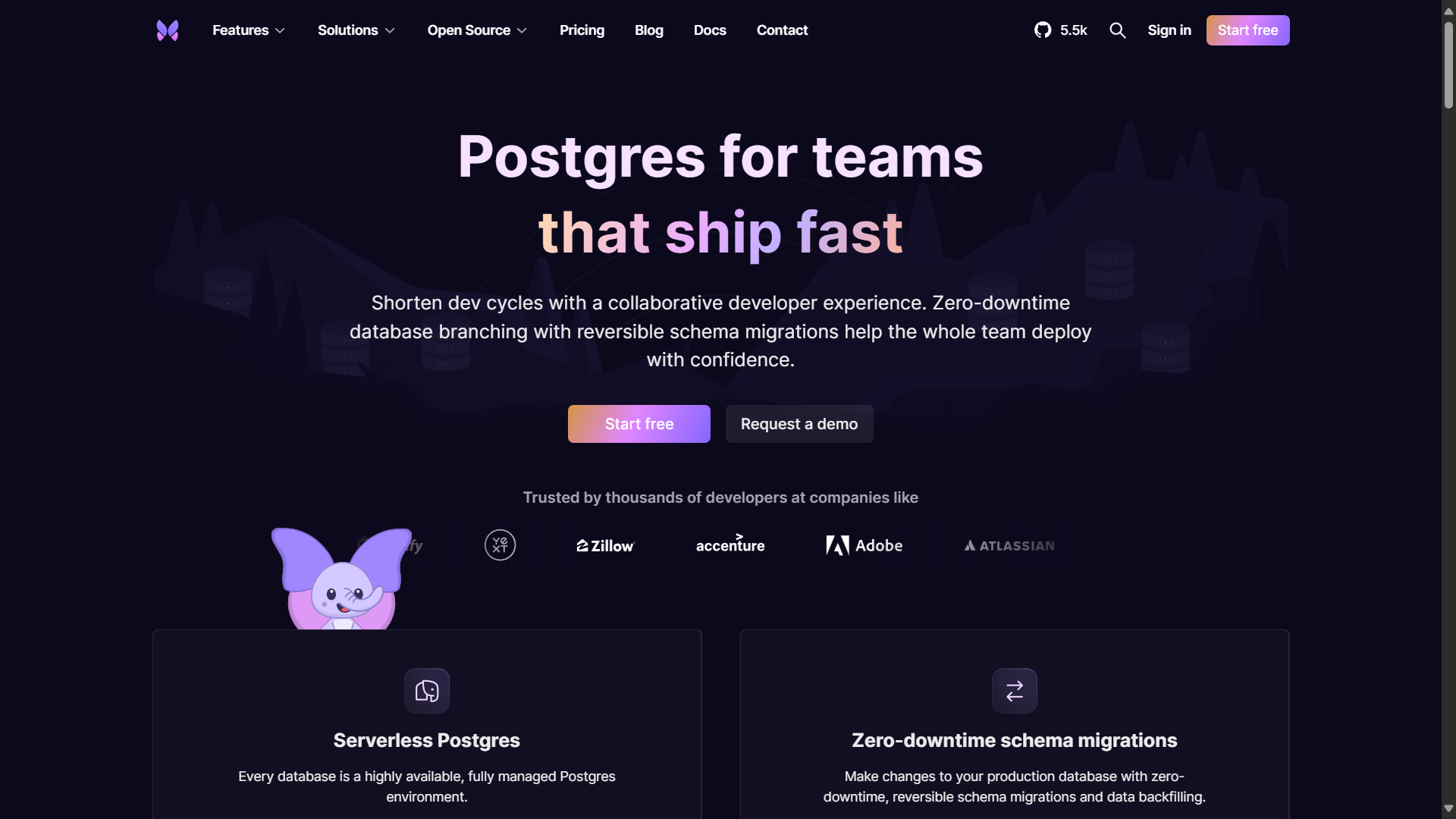
Xata is a fully managed serverless database that focuses on simplicity and speed, making it a great choice for applications that need a straightforward, no-hassle database solution.
Free Tier:
Shared environments
10 database branches
15 GB data storage
Xata offers database branching, enabling developers to easily manage different environments for staging, testing, and production.
Perfect for: Teams who value ease of use and want to work with multiple database environments.
5. Tembo
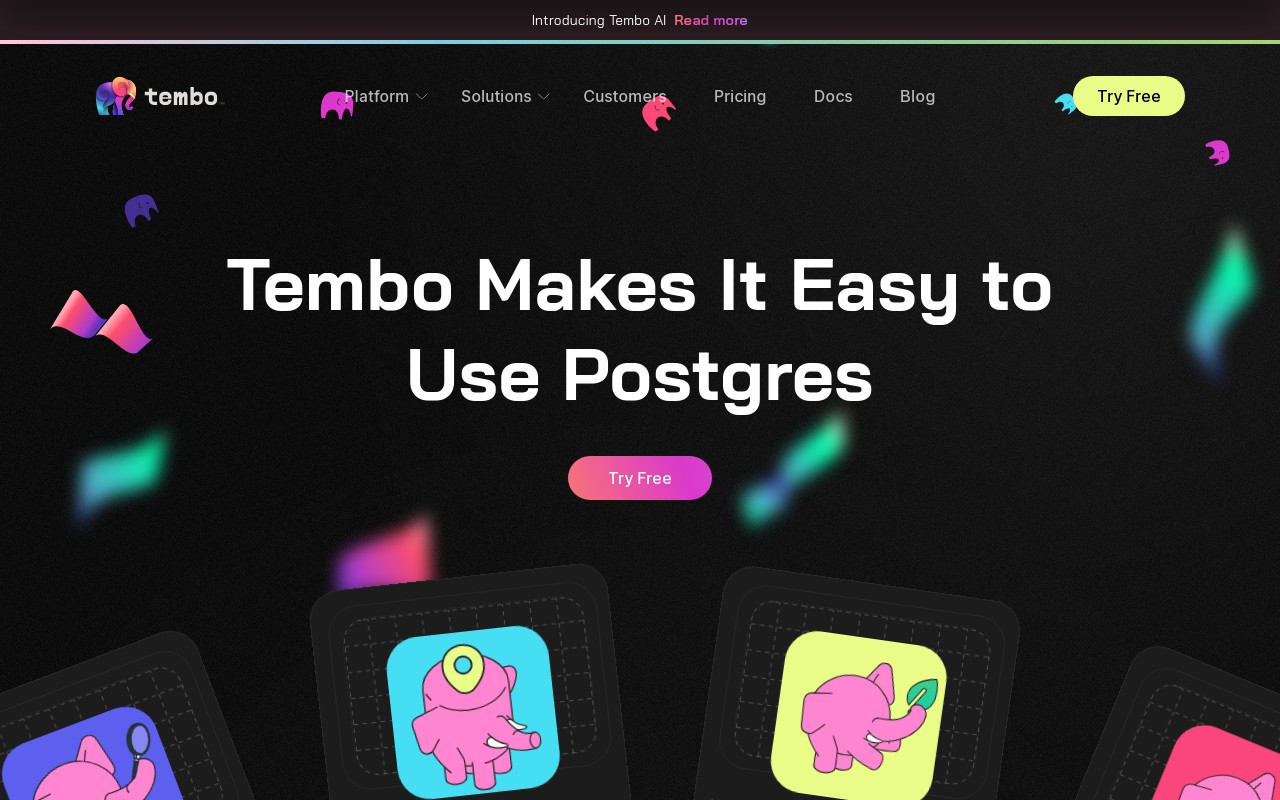
Tembo is a performance-centric PostgreSQL database that comes with a generous free tier, offering unlimited reads and writes for small-scale projects.
Free Tier:
Unlimited Reads/Writes
0.25 vCPU & 1 GB Memory
10 GB Storage
Tembo’s focus on high performance makes it an excellent choice for applications that need scalability and responsiveness.
Perfect for: Projects that require high throughput and performance optimization on a budget.
6. Vercel Postgres
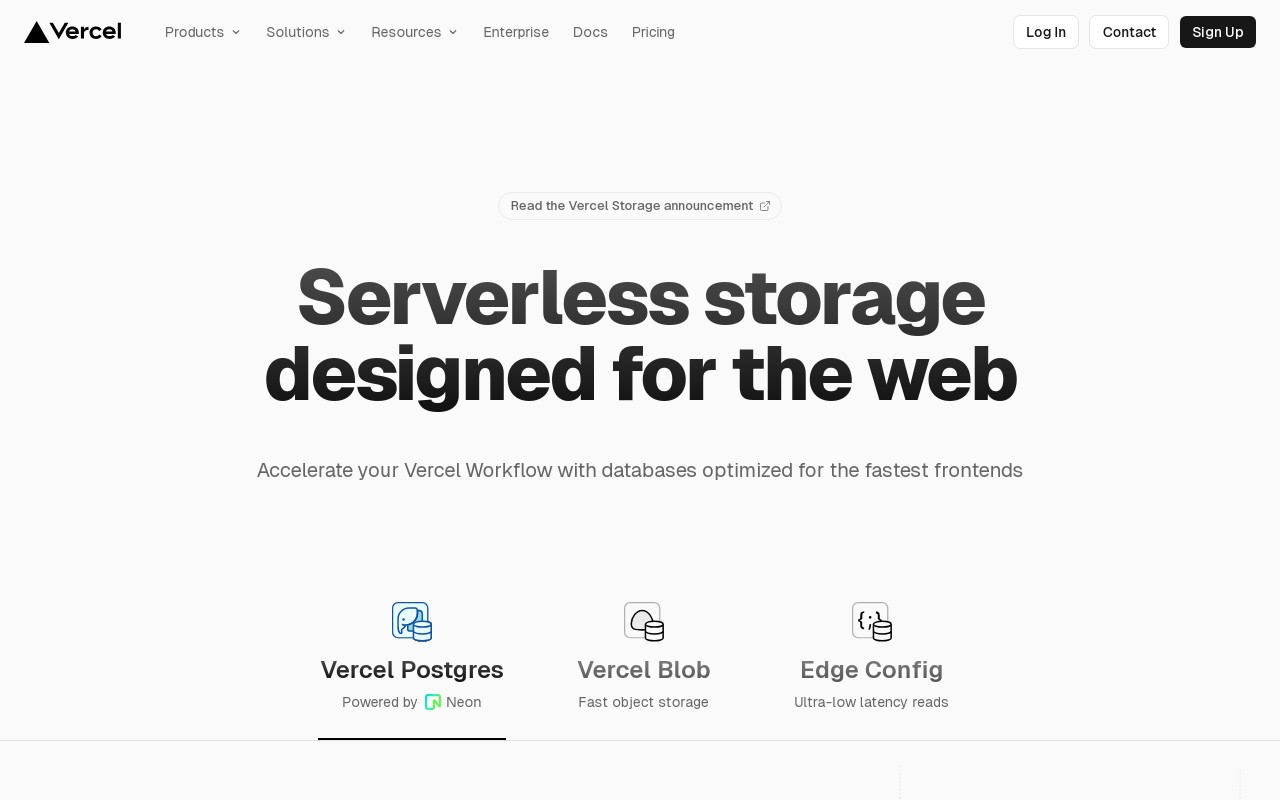
Vercel has expanded beyond serverless deployment to offer managed PostgreSQL with its new Vercel Postgres service. While its compute resources are limited in the free tier, it’s a good fit for projects already using Vercel for front-end hosting.
Free Tier:
60 Hours Compute Time
256 MB Storage
The database integrates seamlessly with Vercel’s serverless functions, making it perfect for lightweight projects that don’t need heavy compute resources.
Perfect for: Developers building low-traffic sites and projects already hosted on Vercel.
7. Koyeb
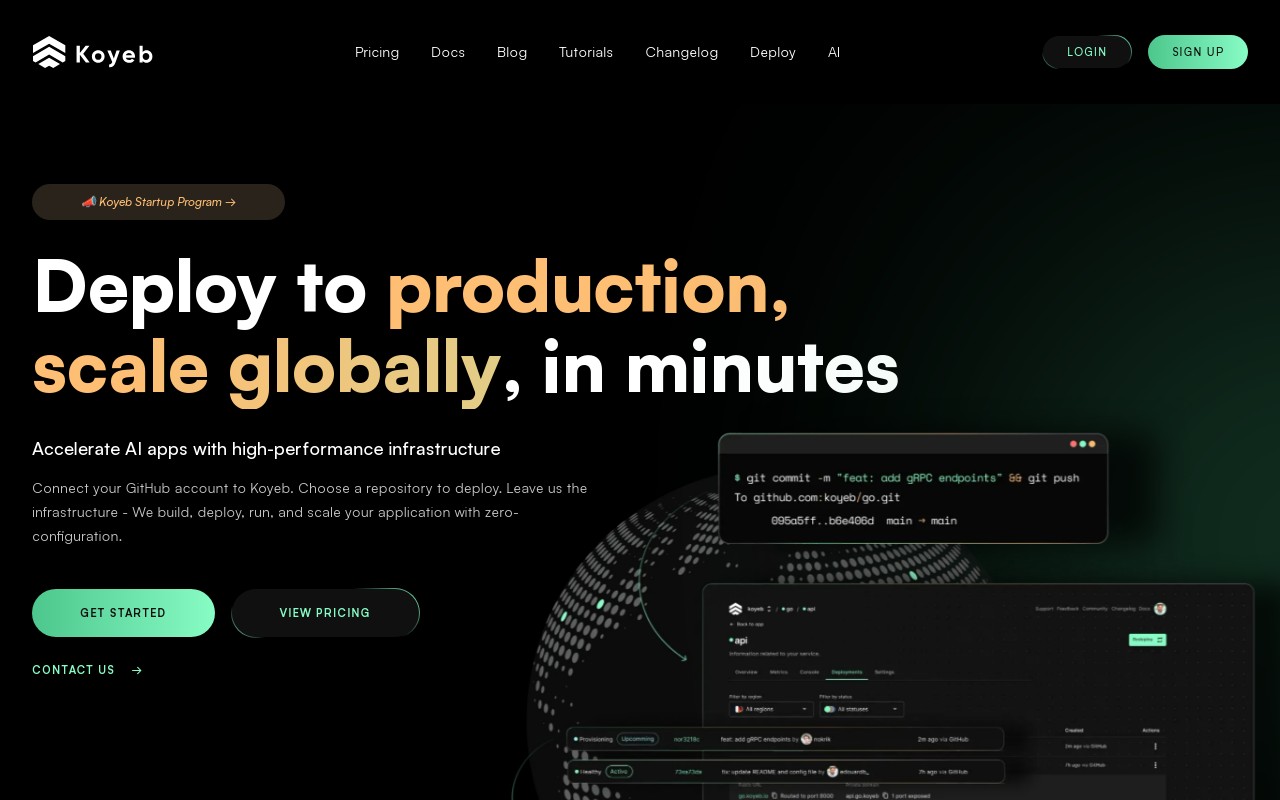
Koyeb is a serverless platform offering PostgreSQL databases along with compute and storage services. It’s designed for modern applications that need quick, auto-scaling infrastructure.
Free Tier:
50 Hours Compute Time
1 GB RAM, 0.25 CPU
1 GB Storage
Koyeb’s free tier works well for personal projects or small apps that don’t require 24/7 uptime but still need strong cloud services.
Perfect for: Developers looking for flexible compute and storage for lightweight tasks.
8. Aiven
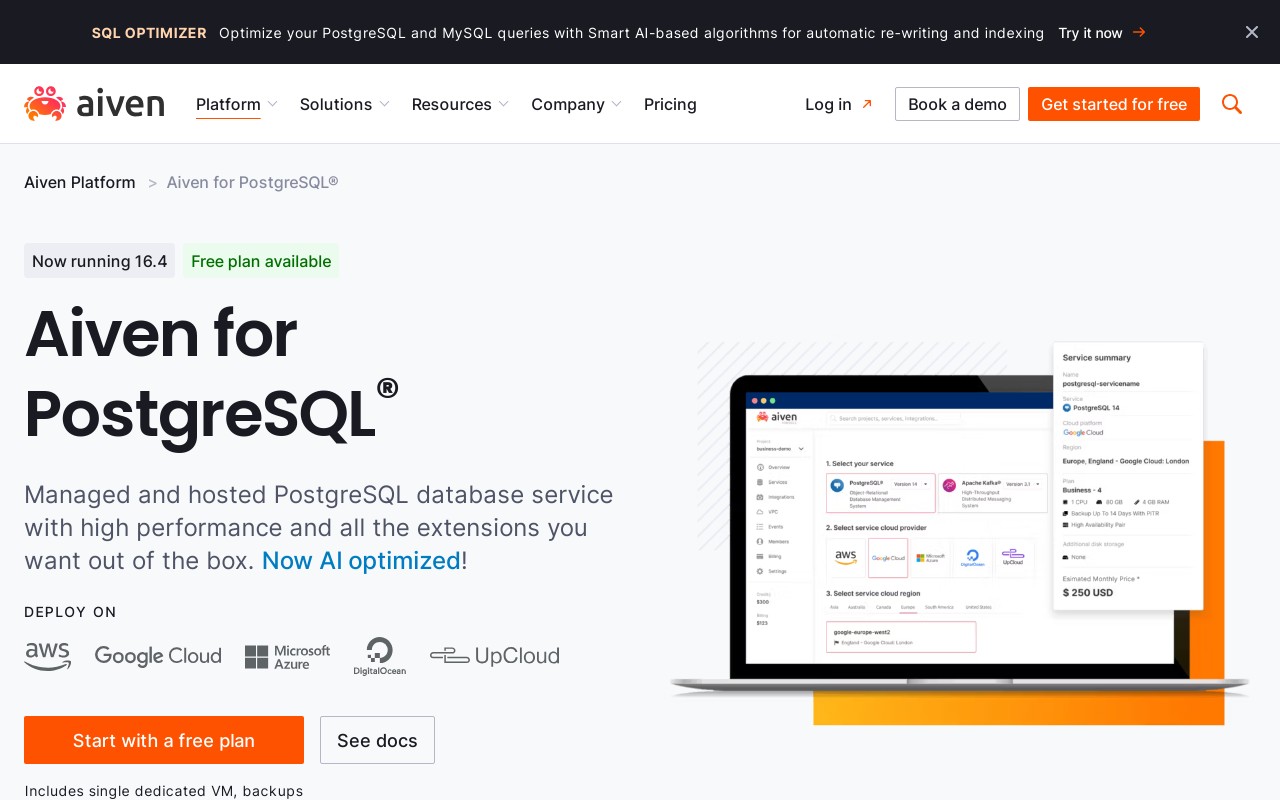
Aiven offers a powerful set of cloud services with PostgreSQL as a key feature. Though its free tier is more limited, it provides a dedicated VM environment, which can be attractive for certain applications.
Free Tier:
1 dedicated VM
2 CPU per VM
1 GB RAM per VM
5 GB total storage
Aiven’s free tier is perfect for testing, experimentation, and small-scale production applications that need a dedicated virtual machine.
Perfect for: Small projects needing dedicated resources for more advanced database setups.
9. Nhost
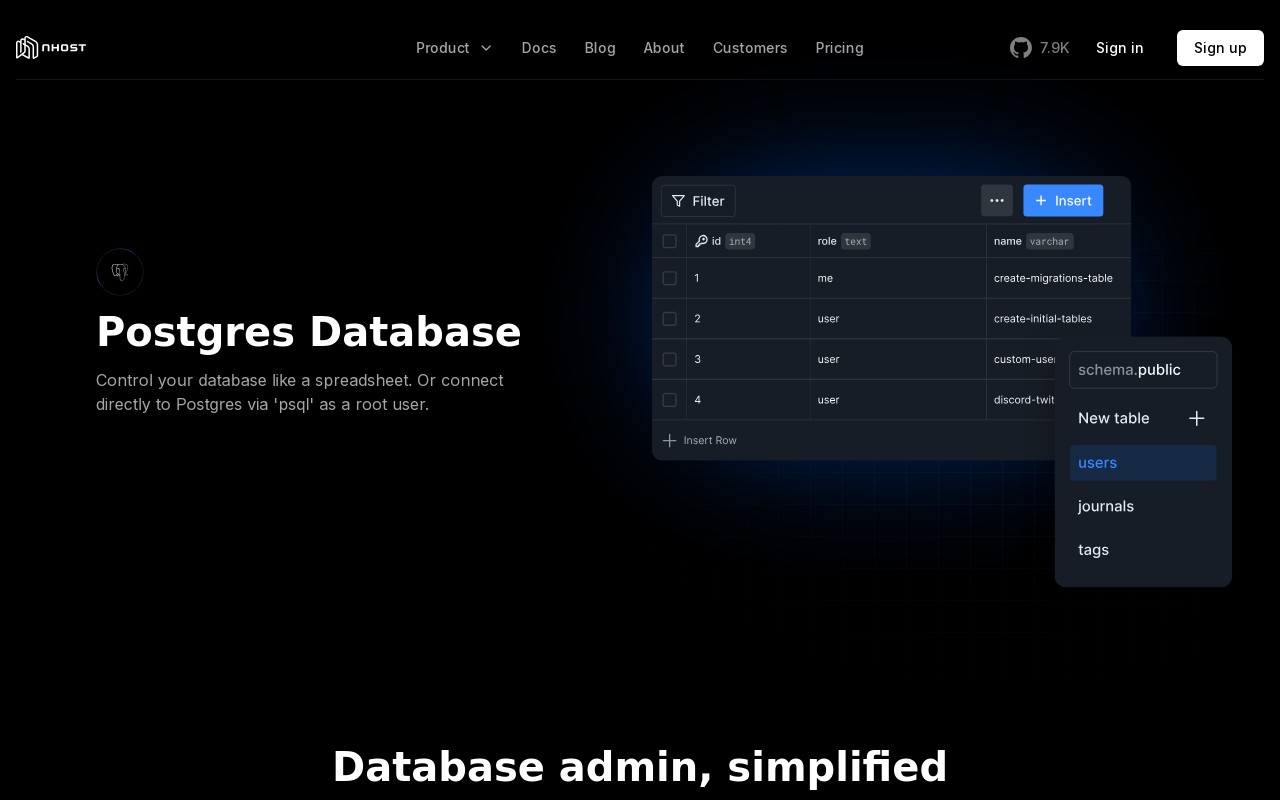
Nhost provides a complete backend-as-a-service (BaaS) platform powered by Hasura and PostgreSQL. With integrated authentication, GraphQL APIs, and storage, Nhost simplifies full-stack app development.
Free Tier:
- 1 GB database
Nhost is an excellent option for developers who need a complete backend solution, especially for GraphQL-driven applications.
Perfect for: GraphQL-based applications and developers who want an all-in-one BaaS solution.
Conclusion:
These free-tier PostgreSQL hosting services allow you to develop, test, and deploy your applications without the burden of upfront costs. Whether you're building small personal projects or experimenting with full-fledged applications, the services listed above provide a range of options for database hosting, ensuring that you can focus on development while staying within your budget. Depending on your project needs, choose the one that fits your compute, storage, and scalability requirements best.
Subscribe to my newsletter
Read articles from Probir Sarkar directly inside your inbox. Subscribe to the newsletter, and don't miss out.
Written by

Probir Sarkar
Probir Sarkar
I am a full-stack developer passionate about building scalable and performant web applications using the MERN stack (MongoDB, Express, React and Node.js). I have experience in developing and deploying web applications using these technologies, as well as integrating them with other APIs and services.
